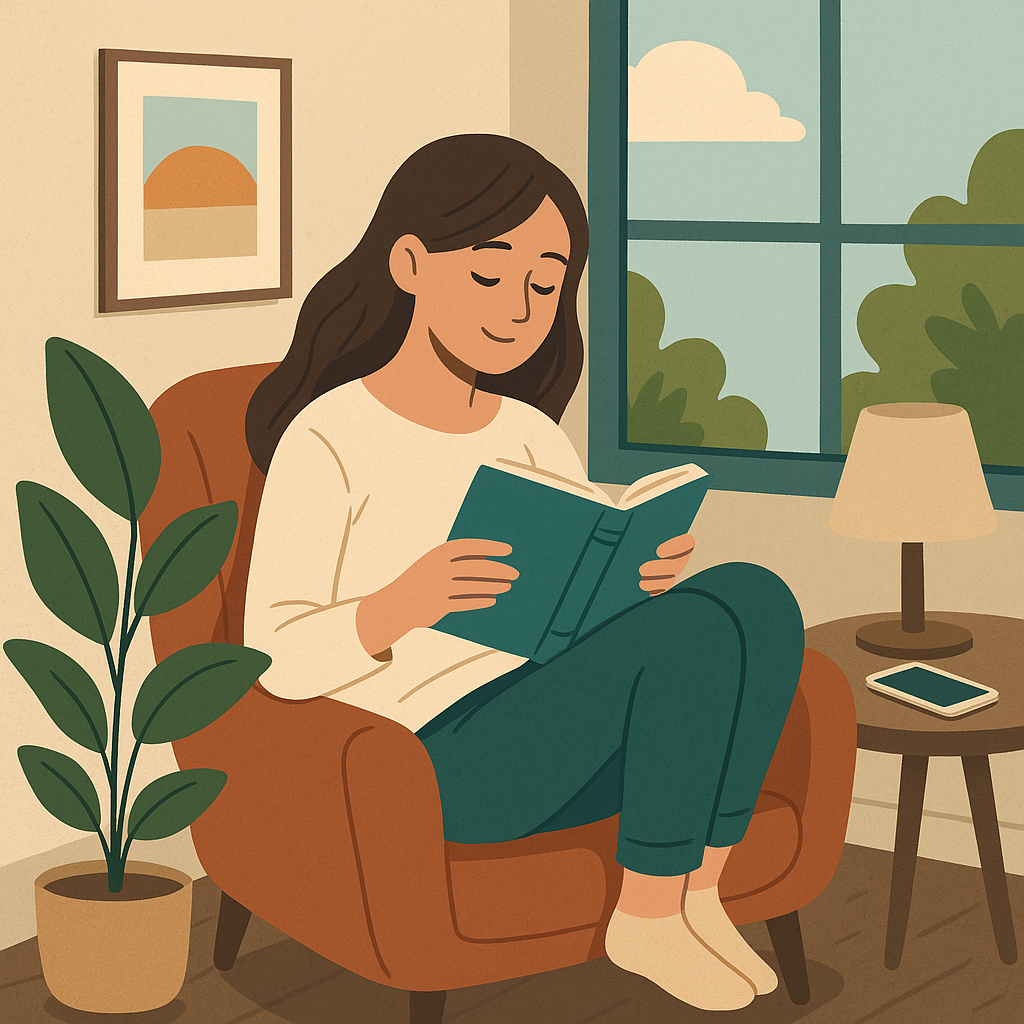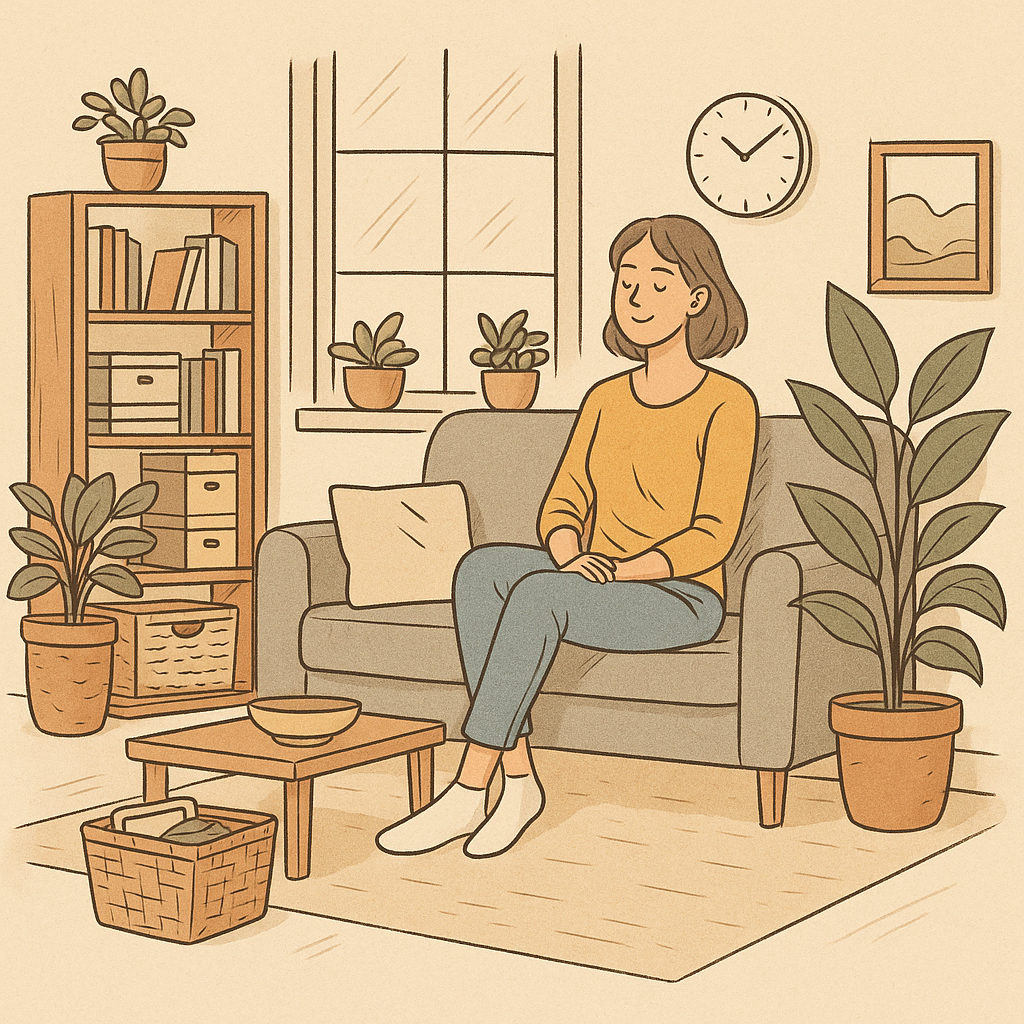Your screen‑free hour can be more than a break—it’s a mirror into your mental habits, priorities, and wellness. Discover what this tiny daily habit reveals about your life—and how to harness its power.

Why “screen‑free hour” is Trending Now
Digital burnout is skyrocketing. In 2025, the average person spends nearly 6 hours 40 minutes a day on screens—and Gen Z averages nine. Adults check their phone more than 200 times per day hms.harvard.edu+14benefitnews.com+14autonomous.ai+14. Experts say taking just three to four hours off screens daily boosts sleep, focus, and mental health time.com.
This has fueled the rise of digital detoxes—weekends offline, vacations with no Wi‑Fi, and even “dumb phone” trends med.stanford.edu+15vogue.com+15adelaidenow.com.au+15. But before resort-ing to high-stakes escapes, a single screen‑free hour each day can be surprisingly telling and transformative.
What Your Screen‑Free Hour Reveals About You
1. Focus & Self-Control
If you breeze through an hour without your phone, you likely have solid self-regulation skills. Time offline helps clear mental clutter: research shows even brief breaks improve problem-solving and concentration linkedin.com+3autonomous.ai+3en.wikipedia.org+3. Conversely, if you struggle to last more than 10 minutes, your brain may be wired for instant dopamine hits from notifications.
2. Anxiety & FOMO Levels
Those who feel anxious or panicked—checking compulsively during screen‑free time—may be experiencing tech withdrawal or fear of missing out. In one “Do Not Disturb” study, half of participants felt anxious without notifications hackensackmeridianhealth.org+2bircheshealth.com+2timesofindia.indiatimes.com+2timesofindia.indiatimes.com+2arxiv.org+2linkedin.com+2. That reaction says more about your mind’s dependency on alerts than your actual connectedness.
3. Life Priorities & Balance
Choosing what to do with that hour—read, jog, reflect, or scroll secretly—reveals how you prioritize your time. Many who reclaim that hour start replacing doomscrolling with nurturing habits like nature walks, reading, or hobbies medium.com+1timesofindia.indiatimes.com+1.
4. Emotional Wellness
Research links spending just an extra hour on screens to worse sleep, mood, and stress levels . If you feel calmer, rested, and more in control after your screen‑free spell, that’s your mental health signaling it thrives offline.
5. Social Presence & Relationships
Those fully engaged in personal connections during this hour—conversations, family dinners, or meetups—likely value in-person social bonds highly. The Mayo Clinic notes reduced screen time leads to stronger relationships and social skills .
How to Make the Most of Your Screen‑Free Hour
Curating how you spend screen‑free time amplifies its benefits:
- Time−Based Scheduling
- Choose a consistent slot (e.g. 8–9 pm) to wire your brain for digital detox.
- Intentional Tech Barriers
- Turn off notifications or switch Do‑Not‑Disturb mode weforum.org+15bircheshealth.com+15autonomous.ai+15autonomous.aisixt.com+2linkedin.com+2medium.com+2.
- Keep your phone in another room or use focus‑mode apps like Forest or Opal thesun.co.uk.
- Choose Qualifying Activities
- Enjoy hobbies like journaling, drawing, cooking new recipes.
- Take a nature walk— just 30 minutes daily in green space lowers stress and boosts focus .
- Engage in real conversation—without glancing at a screen.
- Track Feelings & Patterns
- Journal how you felt before vs. after your screen‑free hour—less anxiety, more clarity, mood shifts?
- Gradual Extensions
- Start with 15–30 minutes nightly. Add more blocks once comfortable—even trying a weekly “digital Sabbath” cites mental health researcher Jonathan Haidt weforum.org.
Real‑World Cases & Community Momentum
- Digital Detox Retreats as a Trend
Resorts are marketing no‑Wi‑Fi stays, device lock‑boxes, and board games instead—people report anxiety in the first 24 hours, then calm, productivity, and even dread phone return medium.com+4vogue.com+4nypost.com+4. - Dumb‑Phone Movement
Influencers and celebrities (like Ed Sheeran and Justin Bieber) are switching to flip‑phones to curb screen addiction adelaidenow.com.au+1en.wikipedia.org+1. Starting small: ditch notifications or go offline an hour a day. - Screen‑Free Week
Since 1994, Screen‑Free Week encourages digital zeros for days—over 300 million participants. These group breaks reinforce the mental impact of screen‑free blocks en.wikipedia.org. - Parental Success Story
A Reddit parent reported their toddler’s tantrums plummeted after a full screen‑detox—within two days. The child now uses screens only during scheduled intervals qustodio.comreddit.com.
What a Consistent Screen‑Free Hour Can Yield
| Benefit | What You’ll Notice |
|---|---|
| Improved Sleep | Reduced blue light & bedtime anxiety |
| Stronger Focus | Brain clarity returns |
| Lower Stress | Less notification overload and anxiety |
| Better Real-Life Connection | More presence in conversations and mealtimes |
Taking It to the Next Level: What You Might Find
Mid-week Check-in
Notice you silently panic when missing out on news or messages? That’s a cue to adjust: maybe choose a less-dependent phone or greater boundaries.
Identity & Values
How you’d spend that hour speaks volumes: someone journaling daily prioritizes introspection; someone hiking prioritizes wellness; someone researching travel is rediscovering curiosity.
Designing Your Lifestyle
What starts as a screen‑free hour can evolve into weekend sabbaths, occasional digital detox trips, or choosing a screen-free retreat—it’s a path to broader balance.
Your 7‑Day Screen‑Free Hour Plan
Use this mini‑guide to explore your response to digital downtime:
- Day 1: Choose a time & put your phone out of reach.
- Day 2: Track how many times you think “I want to check.”
- Day 3: Add a planned activity (walk, hobby, chat).
- Day 4: Turn off all notifications earlier in the day.
- Day 5: Journal post‑hour feelings—clarity? restlessness?
- Day 6: Try 90‑minute offline block.
- Day 7: Reflect—what shifted? What did you learn about yourself?
Final Thoughts
A daily screen‑free hour isn’t just a break; it’s a diagnostic tool. It reveals your attention span, your mental resilience, your reliance on tech, and what truly enriches your life. Regular time away from screens does more than soothe—it shows you your priorities.
If after just a week you’re calmer, more focused, or craving more non‑digital time, that hour is signaling it’s not enough—it’s telling you to design your life with intentional unplugging.
References
- Qustodio: limiting screen time improves sleep, happiness & activity (2021) timesofindia.indiatimes.com+7en.wikipedia.org+7en.wikipedia.org+7qustodio.com
- Stanford Medicine: behavioral interventions reduce screen time in kids (2022)
- Mayo Clinic: benefits of slimming screen time (2024) mayoclinichealthsystem.org
- Jonathan Haidt on digital Sabbath (March 2025) weforum.org
- Vogue & NY Post: digital detox retreats rising in luxury travel (2025) vogue.com+1nypost.com+1
- AdelaideNow: flip-phone wellness trend 2025 adelaidenow.com.au+1sixt.com+1






